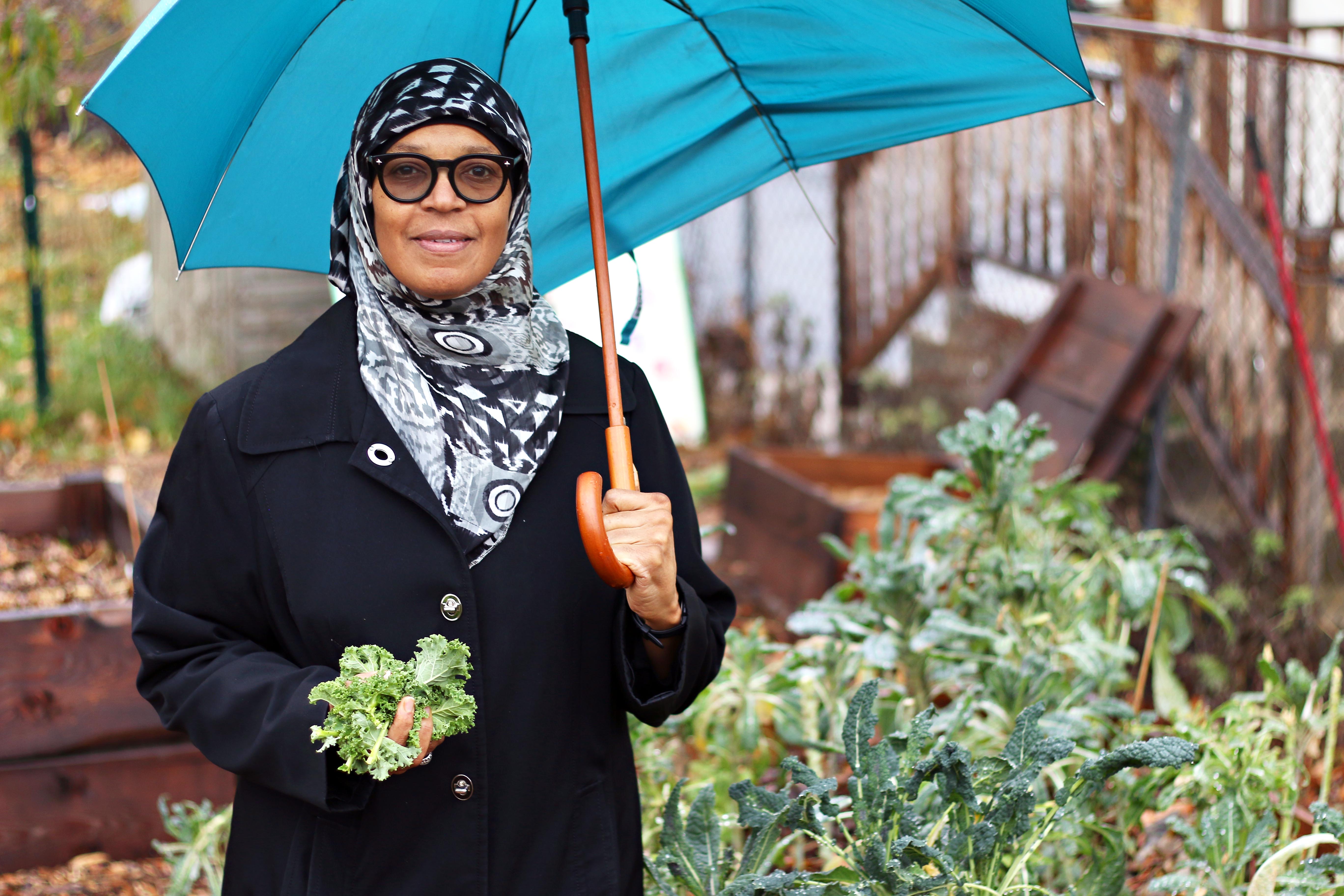
On a vacant lot in the Hill neighborhood, long-time resident Jamilah Rasheed tends to tomatoes and peppers, along with fruit trees and flowers. Rasheed’s work at the Field of Greens community garden in New Haven over the past two years has helped feed families in the surrounding neighborhood. Now, Rasheed is looking for funds to keep the garden growing for another year.
Field of Greens is one of 526 gardens around the world participating in a new fundraising initiative called SeedMoney. This initiative, established by sustainable food nonprofit Kitchen Gardeners International, kicked off Nov. 15. It incentivizes participating groups to raise funds for a “challenge grant,” in which groups aim to raise either $200 or $400 and are randomly selected to have their funds matched by KGI. Field of Greens has until Dec. 16 to complete its fundraising goal on the SeedMoney website. Rasheed said the money from the fundraiser will go toward building new plant beds and buying soil and seedlings for the upcoming spring and summer.
“We’re excited about the success that various projects are having with [SeedMoney],” KGI Founding Director Roger Doiron said. “It’s a useful tool for a wide range of food garden projects serving people in need.”
The garden aims to enhance the eating habits of nearby residents, as well as encouraging neighbors — many of whom are recently arrived immigrants from countries like Afghanistan, Iraq and Mexico — to befriend each other and form a stronger community, Rasheed said.
The poverty levels in the Hill mean people do not eat nutritious food, Rasheed said. The Hill neighborhood has a 41 percent poverty rate, DataHaven reported in 2012. But with the garden’s produce, families have added more vegetables, like onions, sweet potatoes and cabbage, to their diets. The produce allows residents to spend less on groceries as well, which leads to more flexibility in their budgets, Rasheed added.
Rasheed established the garden after attending the 2012 New Haven Food Policy Council Food Summit. She chose a vacant lot on Arthur Street where two houses had been demolished. Before its transformation, the lot served as a location for drug dealing and dumping trash, Rasheed said. After checking with the city to ensure that the location of the garden was legal, Rasheed enlisted the help of the New Haven Land Trust, Common Ground High School and the Livable City Initiative, which provided labor and funds to set up the garden.
According to New Haven Land Trust Executive Director Justin Elicker FES ’10 SOM ’10, the garden is one of 45 that the Land Trust supports throughout the city. Elicker said the Land Trust provides gardens like Field of Greens with the “nuts and bolts” to operate, such as tools and sheds.
“The whole goal is to empower community members to grow their own food, increase community engagement in their neighborhood and make their neighborhood a better place to live,” Elicker said. “Field of Greens is a great example of just that.”
Rasheed said although she and several other community members work in the Field of Greens year-round, ideally a separate family would maintain each of the garden’s beds. Rasheed has maintained efforts to reach out to residents, such as bringing produce door-to-door and teaching children in the neighborhood how to tend to the beds, she said.
While she still sees drinking and drug problems in the neighborhood, the garden encourages residents to view the Hill in a positive light, Rasheed said.
“In the garden we have flowers and pretty colors, which gives people the sense that things can change and become better in this neighborhood,” she said.
Elicker commended Rasheed for her community outreach and the responsibility she has undertaken with the garden. He added that the Land Trust has backed Field of Greens in additional projects, such as the new pollinator plants installed in the garden a few weeks ago.
Field of Greens had previously received a grant from KGI through the Sow It Forward Program, in which gardeners could obtain grants after submitting an application, Rasheed said.
The goal of the new SeedMoney program, which replaced Sow It Forward this year, is to promote the sustainability of gardens like Field of Greens “by helping them help themselves,” Doiron said. Through the SeedMoney fundraiser, Field of Greens can build a database of donors for later reference as well.
According to the SeedMoney Web page, Field of Greens has $165 from six donors as of Wednesday evening.
Correction, Dec. 3: A previous version misstated the name of Kitchen Gardeners International Founding Director Roger Doiron.
Interested in getting more news about New Haven? Join our newsletter!







